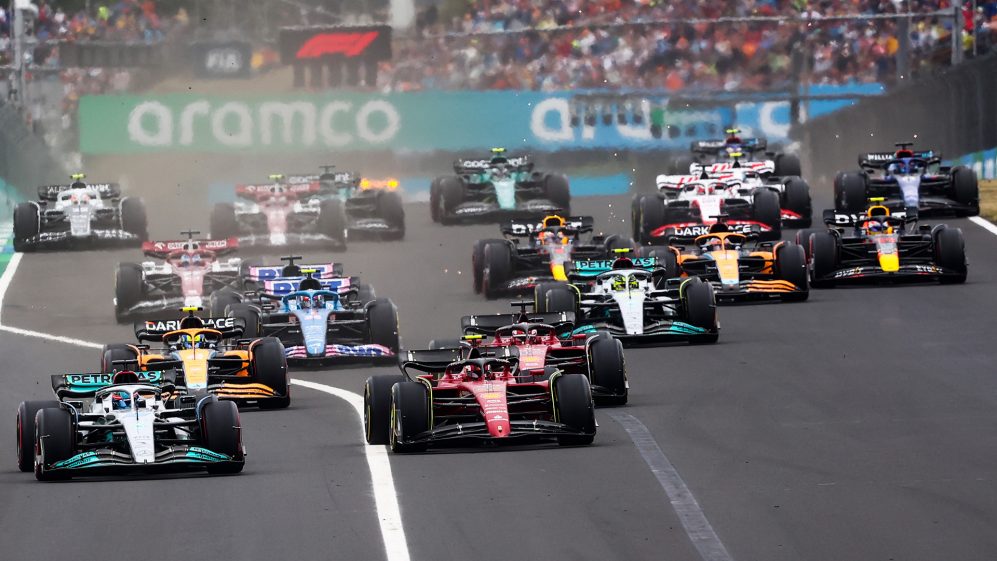GadgetWheels
What it will take to bring F1 to Africa
The continent needs to get in gear to host global motor racing, writes LIZE-MARI DOUBELL, candidate attorney at Webber Wentzel.
Formula 1 has undergone a renaissance recently, with Netflix’s Drive to Survive program playing a central role in the sport’s increased popularity. Viewership worldwide has risen by almost 50% since the show debuted in 2019, and a second race has been added in the United States as part of the 2022 schedule.
Africa is the only continent that does not host an F1 race (as of 2022). Kyalami in Johannesburg hosted the continent’s last F1 race in 1993.
Earlier this year, speculation was rife within racing circles and the press that South Africa could be added to the 2023 race schedule. These hopes were dashed in August, however, when the sport’s governing body announced that Belgium would remain on the 2023 schedule, a slot South Africa hoped to occupy. Perhaps in 2024 F1 will finally return to South Africa and Africa at large.
Motor racing would not come to South Africa alone
If F1 does return to South Africa, beyond the obvious interest the race itself would generate, it is highly possible that it would form the apex of a week-long e-mobility festival, which may include conferences on sustainability and technology.
The South African market cannot overlook the significance of branding and sponsorships. F1 is a great platform for brands to associate themselves with and be visible to millions. The expansion of the race into South Africa will mean that the audience will also broaden, pressing teams to evaluate brand relevancy and market trends in order to consider a good fit for the season. With a noticeable shift in sponsorship from historic alcohol and tobacco advertising to cryptocurrency and technology, this could possibly be an opportunity for one of Africa’s emerging fintech companies to flex their brand on the F1 stage.
F1 may seem to have little relationship to sustainability, the environment, and standard road vehicles, yet its influence on modern car design is significant. The sport uses some of the most efficient engines worldwide, and the advancements in F1 hybrid engine development have trickled down into the broader motor industry. Synthetic fuels may be the next great innovation.
Formula E will make its local debut in Cape Town next year. It was initially considered for 2022 but later postponed. Formula E is the single-seater motorsport championship for electric cars. It has been described as a vital testing platform to develop the next generation of electric vehicle technology.
It has now officially been confirmed that Formula E will grace the streets of Cape Town on 25 February 2023. The ABB Formula E World Championship has announced the proposed track and further plans.
Can South Africa host these events?
While South Africa would be a fantastic pitstop for Formula E and F1, hosting motorsport events of this scale however, is highly complex, unlike any other sporting event hosted in the country since 1993.
A critical consideration is the sheer scale of these events. Kyalami, for example, boasts a capacity of 100,000 people. Those people would need to get to the venue, which requires amenities to match the capacity, while the logistics to get the competing teams to the track are monumental on their own. This is before we even consider the necessary coordination of a wide range of stakeholders, such as participants within the hospitality, leisure, engineering, security, government, entertainment, and dining sectors. This is an opportune time for the stakeholders to consider creating employment opportunities in the short, medium, and long term, which may positively impact, amongst others, South Africa’s unemployment rate.
One of the reasons why Formula E postponed its 2022 launch in South Africa was that the infrastructure was not ready to host such an event. At the time, there were also unpredictable Covid-19 restrictions.
However, the 2010 FIFA World Cup proved that South Africa could host events on a global scale. Yet, after the event, the economic opportunities created by the World Cup were arguably not capitalised on.
Through Webber Wentzel’s engagement with our partners, clients and stakeholders in the hospitality, leisure, technology, media, and corporate sectors, we have learned that the success of these large-scale events depends upon the strength of sustainable collaboration. There is immense opportunity for commercial growth, and new partnerships to be formed, particularly in the realm of business and human rights, and net zero commitments in line with global commitments towards the just transition to a lower-carbon economy.
If international motorsport comes to South Africa, these past experiences, successes, and failures must be utilised so that South Africa can put on a spectacle that leaves a lasting impression on the global F1 and Formula E communities.
* With contributions from Garyn Rapson, partner, Paula-Ann Novotny, senior associate, Leanne Mostert, partner, Duncan Potgieter, associate, and Joani van Vuuren, senior associate at Webber Wentzel.















